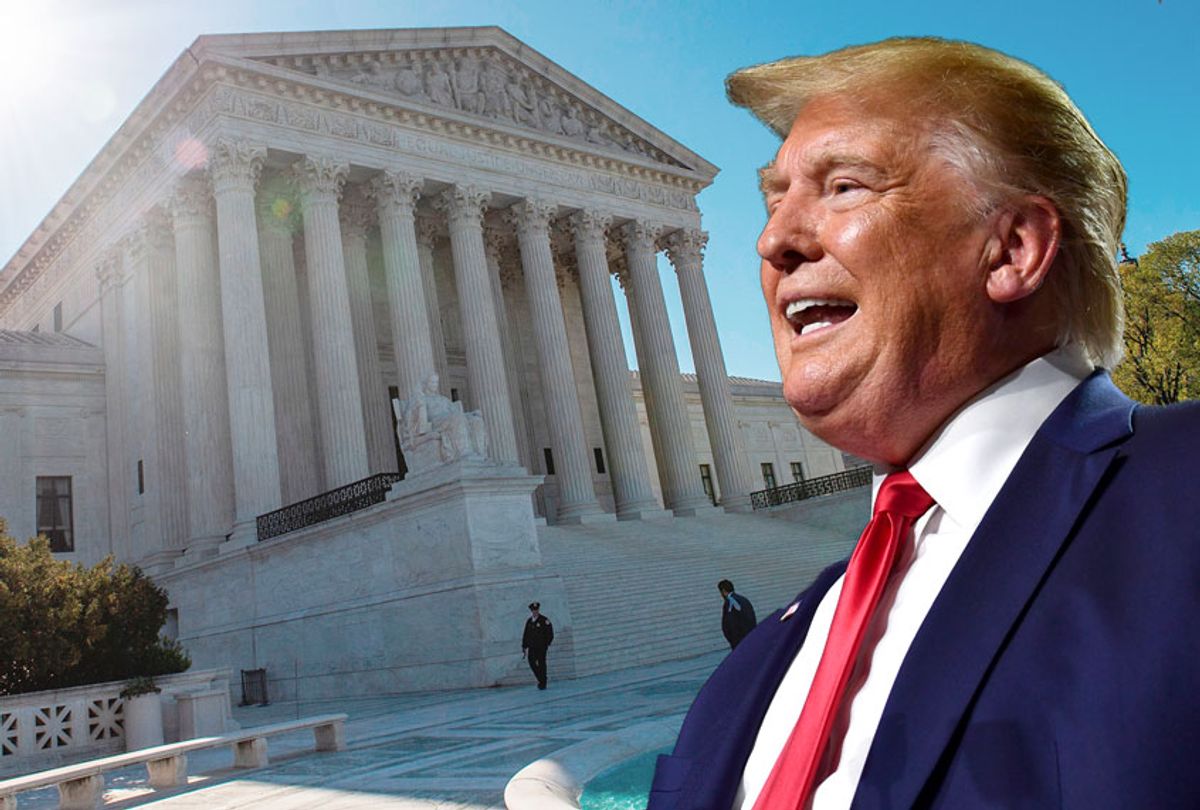Outrage erupted Monday after the U.S. Supreme Court allowed the Trump administration's so-called public charge rule—a policy its critics call "a racist wealth test"— to stand.
The vote (pdf) was 5-4, with all five conservatives in the majority, to grant the administration's request for the rule to be implemented even as it faces challenges in lower courts.
"This is shameful," Rep. Alexandria Ocasio-Cortez said on Twitter. "America shouldn't have a wealth test for admission. It's a place where millions of people are descendants of immigrants who came w nothing & made a life. The American Dream isn't a private club with a cover charge—it's the possibility of remaking your future."
The rule, pushed by White House senior adviser and white nationalist Stephen Miller, was immediate met with immediate criticism when it was first rolled out. As CBS News reported:
By dramatically expanding the definition of a "public charge," or an economic burden on society, the U.S. Citizenship and Immigration Services (USCIS) regulation unveiled in August gives officials more power to deny visas and green card applications from immigrants and prospective immigrants whom the government determines rely, or could rely, on certain public benefits like food stamps and government housing programs.
For decades, the U.S. has asked most green card and visa petitioners to prove they won't be a "public charge" on the country, but the new rule scraps Clinton-era guidance that said only the use of cash benefits could be analyzed by immigration caseworkers.
"The rule also allows immigrants to be declared a 'public charge' and denied green cards even if they are employed," The Hill noted.
A federal judge in October issued an injunction blocking the rule from going into effect and called it "repugnant to the American Dream." The Trump administration asked the Second Circuit Court of Appeals to lift the injunction but was rebuffed. The administration then took its effort to the high court, resulting in Monday's ruling. The ruling does not apply to Illinois, which is covered by a separate injunction.
The immigration rights attorneys fighting the policy remained undeterred in their effort.
"The court's decision to lift the injunction is very disappointing, but our challenge to the draconian public charge rule is still moving forward," said Ghita Schwarz, senior staff attorney at the Center for Constitutional Rights. "The district court's decision to stop this unlawful rule from taking effect was based on ample evidence of the harm that it will cause to immigrant communities, and we look forward to defending the injunction in the Second Circuit."
Human rights advocates and immigrant rights attorneys piled on criticism to the new ruling.
"The Supreme Court's decision will further marginalize immigrant communities and will inevitably create a socioeconomic hierarchy in our immigration system," said CAIR government affairs director Robert McCaw. "The Trump administration's policy could quite literally kill people by making them too afraid to seek life-saving medical care, and the Supreme Court seems to agree such a cruel system is acceptable."
Sen. Bernie Sanders, a Democratic presidential candidate, weighed in as well, invoking his own family's immigration experience.
"My father came to America at 17 without a nickel, speaking no English," he wrote. "He grew up to be the proudest American you ever saw. Trump's policy is disgraceful. It is not what America is about. We will defeat him and end his demonization of immigrants and the poor."
Alex Jacquez, a senior policy advisor with Sanders campaign, said a Sanders White House would do away with the rule.
Lorella Praeli, president of Community Change Action, said the court's decision would negatively impact millions of the most vulnerable—with "lasting consequences on women, children, and the elderly." She called on Trump's 2020 opponents to take a firm stance against the president's policy.
"Every Democratic candidate running for President must declare that they will rescind Trump's public charge rule on day one of their administration," Praeli said. "In this election, we will make sure our community knows who was willing to fight for us and who fought to uphold a white nationalist agenda."



Shares